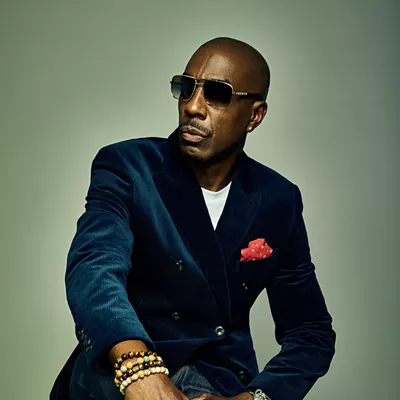Arranged marriages aren’t such a big problem anymore — in America, anyway. And, outside of The Real Housewives of New Jersey (and maybe certain areas of Appalachia), family feuds aren’t really giving people trouble, either.
So it’s hard, in socially permissive times like these, to get really worked up about the old-fashioned injustices in a play like Romeo and Juliet, Shakespeare’s 400-year-old ode to choosing whom you marry. I mean, “star-cross’d lovers”? Do they even have those anymore?
Maybe not, but the first week of Gonzaga’s production sold out a month ago. So someone’s still interested.
When you put the questions to the cast — What should we take from this play? Why does it still matter? — the answers come quick. Jacob Moore, a senior math student who plays the Friar, says, “emotion overflows everything.” It’s true in life as it is on stage, says Father Kevin Connell, who directs. There was a shooting recently at the Jesuit middle school where Connell taught before coming to Gonzaga Prep (where he’s the principal). “Someone just walked up and blew this kid away,” he says. “Forty-one witnesses, and no one would say a word.”
They’ve taken a few liberties with the script to reinforce the kids-killing-kids angle. Usually, when the firebrand Tybalt kills Romeo’s bestie, Mercutio, Tybalt stalks offstage and then returns before Romeo kills him in retaliation. “It’s really awkward,” Connell says. Here, they have him rush to Mercutio’s side, as though he were just a child (and indeed, he is), realizing what hell his game of swords hath wrought. Romeo kills Tybalt when Tybalt tries to comfort him.
They’ve also sought to further humanize Tybalt, giving him a few scenes with Juliet that usually belong to her Nurse (played with bawdy aplomb by Jennifer Spindler). Using these new scenes to underscore both her affection and his stunted emotions, Tybalt — played with a kind of charismatic detachment by Steven Gray — becomes almost a tragic anti-hero. He’s not the good guy, but he’s far from evil.
These are subtle changes that prove transformational. As to why GU’s Romeo is proving so popular with audiences, add to all of the above something Shakespeare never could have planned for: two of the cast, Gray and Kelly Olynyk, are stars of Gonzaga’s national powerhouse basketball team.
It may be coincidence that the first week sold out around the time ESPN.com caught wind of Gray’s return to the stage (he played a gay baseball star here last year in Take Me Out). But a little star power never hurts.
{embed_video}
Geoff Kanick, Taylor Pedroza and Gonzaga basketball player Steven Gray rehearse a sword fight during the Oct. 21 final dress rehearsal for Gonzaga's production of Romeo and Juliet.
The play doesn’t begin sadly, of course. After a spooky rendition of the famous “two houses, both alike in dignity,” prologue, 7-foot Kelly Olynyk — Gonzaga basketball’s great Canadian hope — quickly gets into a fight, picking (approximately) 5-foot-8 Patrick Ostrander up by the neck and holding him aloft as swords (and, anachronistically, roundhouse kicks) flash around them.
It’s a rousing start to a jocular, swashbuckling first half.
Olynyk plays Abraham as one part Little John and two parts Andre the Giant — and gets good laughs out of it.
Geoff Kanick, who looks like Jeremy Piven, is funny too as Mercutio — a catalyst for much of the tragedy to come, but for now a comical, raunchy scene-stealer.
Things like the roundhouses (courtesy of David Lee, who plays Balthazar as a goofy acrobat like Jackie Chan) add a temporal shift to the traditionally staged play that, along with Tybalt’s increased role as caretaker and confidant to Juliet, diminishes the segregation of the sexes and also the female repression angle.
Connell’s production is all billowy shirts and plum-smuggling Renaissance shorts, but suspended in a kind of Never Never Land where cultural boundaries are hinted at but never actually seen.
Later, Romeo and Juliet will spend the entire (and I mean en- TI-yer) second half saying their love is doomed. All the while, the audience is all, like, “Uh, why? Just move to Williamsburg and get a killer flat together or something.”
The biggest stick-in-the-mud is, of course, Romeo himself.
The exaggerated emotionalism is something Connell and Taylor Pedroza, who plays Romeo, took from emo culture. Everyone is in tights, but Romeo may as well be wearing skinny jeans, and Pedroza knocks the self-serving aggrandizement of sorrow out of the park.
And Romeo and Juliet offing themselves over something like parental disapproval would seem over the top if it weren’t exactly the sort of thing that is happening right now.
To Tyler Clementi, for example. After a gay encounter was streamed over the Internet, he killed himself over the prospect of his parents and peers learning of his homosexuality.
“We had Westboro Baptist here today,” Connell said last Thursday after dress rehearsal, letting the name hang like an invoked spirit.
The things that affect gay youth today, he suggested, isn’t unlike those that affected Shakespeare’s lovers. The tragedy of that is enough to make anyone a little emo.
Connell honestly doesn’t think people are coming just to see Gray and Olynyk, though it’s something he has considered. “I would hope that any high school kid who only comes to this show to see some guy they saw on ESPN will take something more away from it.”Something like a grief-stricken Romeo saying, “I defy you, stars!” But then, of course, you don’t kill yourself.
Romeo and Juliet • Thurs, Oct. 28 at 7:30 pm; Sat, Oct. 30 at 8 pm; Sun, Oct. 31 at 2 pm • $12; $8, students • Gonzaga, Magnuson Theater (east end of College Hall) • 502 E. Boone Ave. • (866) 295-3105




















